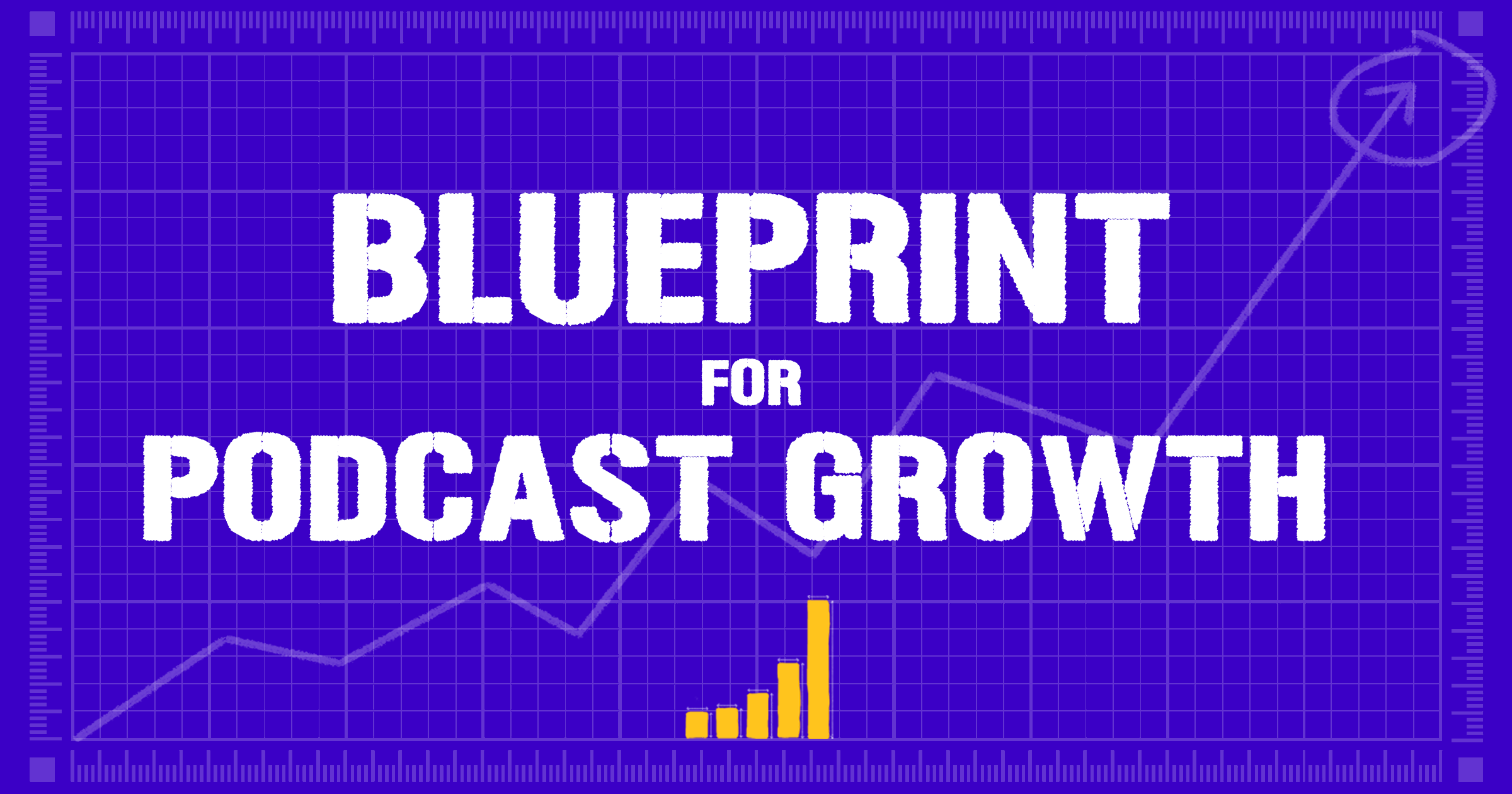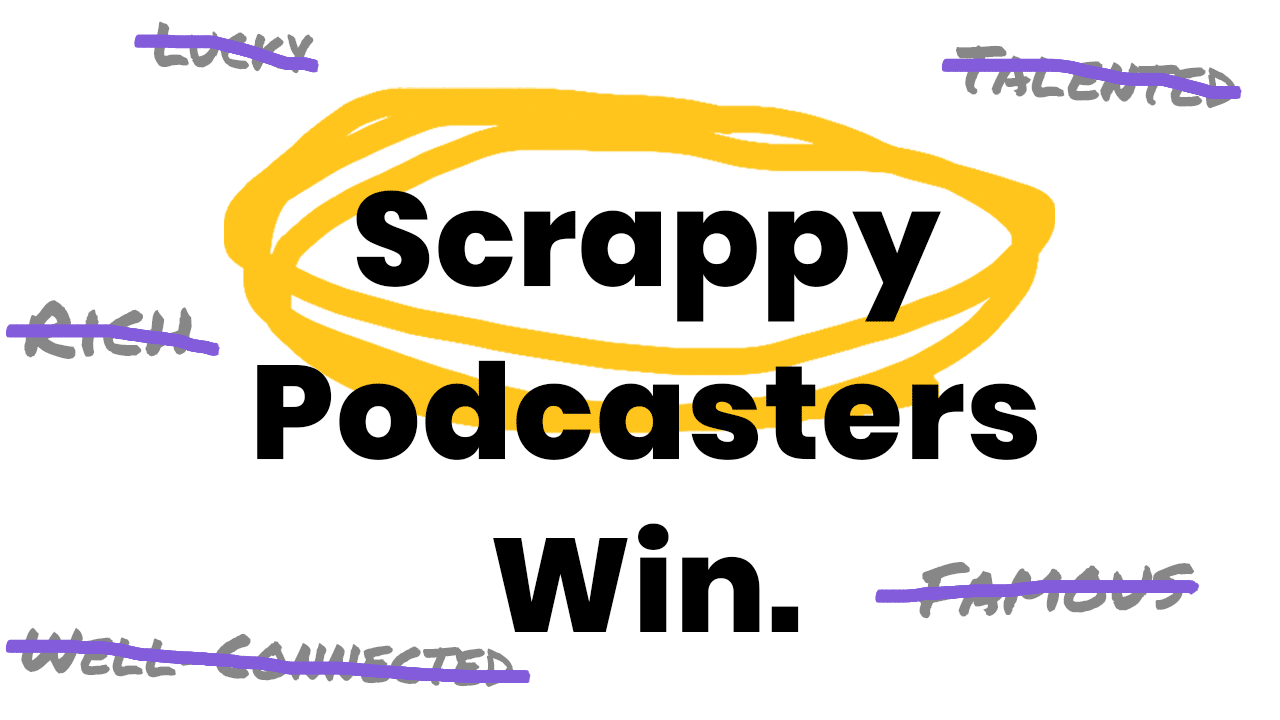If you’re anything like me, at some point you’ve found yourself scrambling to come up with ideas for a podcast the day before your weekly (or whatever your release schedule looks like) publish date.
If you’re even more like me, this isn’t some rare occurrence, but rather a natural part of life as a busy podcaster trying to balance other responsibilities such as family friends, and those pesky day jobs…
I think it’s safe to say that most of us are not exactly thrilled with this current state of affairs, but we can’t see what the solution to the pickle we find ourselves in is.*
* I was going to use the word “problem”, or “conundrum” there, but pickle is a way funnier word, ya know? Just a bit of insight into the “creative process” behind this blog…
If you find yourself nodding along as you read this, you could probably use a content calendar to streamline your podcast production process.
So in this article we’re going to talk about how to set that up so you get the most out of it. If you read last week’s article about what we can learn from Oprah about podcasting, you’ll probably notice pretty quickly how the pre-episode planning processes all tie in together.
I also want to embark on a group challenge with anyone who’s interested in joining me to get our acts together and get organized to make our weekly production easier. More on that at the end.
A Quick Rundown of the Benefits of a Well Designed Content Calendar
You might think that the benefits of having a content calendar are solely in the organization and time management categories, and it’s true that there are huge gains to be had there. But as we’ll get to shortly, that’s not the only way a well-designed content calendar can help your podcast.
Let’s run through a list of benefits.
- Reduce the stress of looming publish dates with nothing to release
- Improve the consistency of your podcast releases. This is huge to building your audience
- Give yourself a reason to think in advance about the content of your episodes and let ideas brew
- Have an established system to break down and analyze your ideas to piece them together into better, more cohesive episodes
- Come across as a bad-ass podcaster who has your shit together and be the envy of podcasters everywhere
- Increase the list of things you have in common with awesome folks like Pat Flynn, Amy Porterfield, and pretty much every other big name podcaster (noticeably absent from this list is Dan Carlin, but he gets a pass…)
Step 1: Forget the Calendar, Start with the Content
Ok, so to start, we’re not going to think about planning or scheduling or calendars or any of that stuff that makes us feel like responsible adults who contribute to society.*
* Cuz really, does anyone actually want to feel like that???
No. No they don’t.
So rather, we’re going to start by getting our spew on and dumping every single idea we’ve ever had for a podcast episode into a list. Good or bad, novel or cliche, laser-focused or an amorphous blob that only vaguely resembles an idea at all, get them all out! Don’t judge or categorize them at this point, just get them out of your head and into some sort of repository.
I’m a BIG fan of WorkFlowy* for making lists. It’s free, super minimal, versatile, and most importantly makes sense to my brain. If your brain doesn’t like the feel of it, I think it’s safe to say that we are living in the golden age of both list apps and physical notebooks, and there’s sure to be something out there for you**.
* FYI, that’s an affiliate link. I don’t actually get paid anything if you sign up, but we’ll both get a bonus 250 list items per month, which – let’s face it – is way more important than money anyways…
** If you find something really cool, let me know, I’m a huge list nerd!
Time To Organize
Once you’ve completed your brain dump, it’s worth spending some time organizing the morass of ideas that have just spewed out of you like a bad burrito.*
*Sorry for that image… Actually, you know what? I’m not. #sorrynotsorry
I’m not going to tell you how to organize your list, but some ideas might include.
- By how often a topic gets requested by your audience
- Into subcategories
- By how excited you are to do an episode on the topic (this is what I do)
- By how developed the content or structure of the episode is in your mind
- By the first colour that comes to mind when you read the idea… (Not really sure how useful this one is, but if it works for you, go for it…)
It’s easy to underestimate how important taking the time to get the ideas out of your head and organizing them can be. While I generally try to keep scheduled at least a week or two in advance, when the occasion inevitably arises where it’s 2 days before an article needs to be published and I don’t know what I’m writing about, I can quickly reference my list of ideas and find something that I’m excited to write about.
My list currently has probably 50+ ideas blog post ideas on it, and I’ve taken it a step further by creating sublists in WorkFlowy under many of the topics about points I want to cover in that article. For some of the articles I’ve been thinking about longer, I have full, bullet point layouts ready to go. This takes the pressure off big time when it’s crunch time and I need to get something out, and future Jeremy says a big thank you to past Jeremy (and then curses past Jeremy for getting into the time crunch in the first place…).
Step 2: Adulting. Yes You Have To Do It Now
But First: Confession Time
Ok, so I have to admit that while I’m great at dumping my ideas into lists and often even building some structure into them before sitting down to fully flesh them out, that is where my organization typically ends.
I’ve realized recently however that this is something I need to improve. And that by getting more organized, my entire blog creation process will be smoother from ideation to promotion.
While I’ve flirted with content calendars in the past, they’ve never stuck, mostly because of a lack of dedication from my end.
But not this time. I’m doing this for real and I’d love if you joined me. Again, more on that at the end.
Ok, back to step 2.
Alright, so I know you don’t want to, but it’s time to move past the crayoning outside the lines phase of this project and onto the scheduling.
Again, you have your pick of tools to choose from when it comes to scheduling out your episodes, including this one that I’ve designed specifically for podcast production.
Other options include creating a google calendar specifically for your production schedule, including it in WorkFlowy or your choice of list app, or using any of the other infinite list or scheduling apps. I’m also a big fan of white boards or cork boards if your an IRL type of person.
The schedule is important, but in my opinion, the act of scheduling can be made much more powerful by thinking a little more in depth about your episodes during the scheduling phase.
More Than Just Scheduling
When it comes to scheduling, I like to take it a step further than simply putting the topic of the episode on the calendar. For anything I put on the calendar, I want to have my topic, sure, but I also want to have at least a start on the structure of the episode, what the main points to cover are, who the guest (if your podcast has guests) is going to be, and so on.
We went over all of this in last week’s article on setting intentions for each episode, and I even included a worksheet to help you lay out your shows and dig deeper into what you’re actually trying to achieve with that episode.
You might set up a system for yourself wherein you keep your episodes scheduled 4-6 weeks out into the future, but update the episodes each week, filling out a little more information for each episode as it draws nearer to record date.
Your process might look something like this:
- 6 weeks out: Define episode topic and set your intention. What are you hoping your audience will take away from this episode? Reach out to potential guests (if required).
- 5 weeks out: Jot down list of points you want to cover in the episode. Confirm guest (if required) and start researching them.
- 4 weeks out: Come up with a structure and flow for the episode incorporating all the points and stories you want to cover. Come up with a list of interview questions for guest (if required).
- 3 weeks out: Record episode.
- 2 weeks out: Edit episode, create show notes and get it prepped to publish on your host and website.
- 1 week out: Get your promotion posts prepped for the episode, follow up with guest (if you had one) to notify them about the release and how they can share it.
- PUBLISH & PROMOTE!
Keep in mind that with this strategy, you’ll be doing each of these tasks for a different episode every week.
Another option would be to schedule out all 6 (or however many you want) episodes at once, completing all the above steps at once, thus giving you a six week “break” before the next production sprint.
Feel free to adopt and adapt either of these systems to your own workflow, or come up with something completely unique to you!
Getting Started
Looking at the above workflow, it’s easy to get overwhelmed and start thinking that your current workflow is actually way less work than this, and that putting together a content calendar serves you no real purpose.
First, that might very well be true. You might not research your guests beforehand and come up with questions unique to them. You might not think about your topic and what points you need to make to get your point across to your audience. You might not take time up front to come up with your social media promo posts.
If that’s the case. Yes, this is going to be more work, but that has nothing to do with the scheduling. We’re trying to make better podcasts here, and with this schedule I’ve simply incorporated many of the little things that go a long ways to improving your podcast. If you’re not already doing them, this will certainly be more work. But it’s work that is actively improving your podcast.
Secondly, I bet if you spent a week and wrote down every time you did something related to producing your podcast, your list would get pretty long, pretty quickly, and I doubt it would be as organized and repeatable as this one*.
* If it is, carry on, you’re doing amazing!
Time For A Challenge
Ok, so I’ve mentioned above that I want to start a challenge, as much for myself to improve my consistency and quality of this blog as to help you improve the consistency and quality of your podcast.
So here’s what we’re going to do.
I’ve set up a Google spreadsheet that I invite you to sign up for where we can track our progress over the next 14 days and keep keep each other accountable with scheduling out our episodes.
It’s nothing fancy, but it’s a way to see that others are making progress, improving their shows, and gives each of us some added motivation to keep taking one small step at a time toward a more organized, more impactful podcast.
If you’re interested, sign up and I’ll send you the link to the sheet, add your name to the top, and each day, keep track of any progress you’ve made towards scheduling and organizing your future episodes!
Can’t wait to see ya inside!
I’d love to hear how you schedule and organize your podcast production workflow? Where does it fall short? What changes have you made that have had the biggest impact? Lemme know in the comments yo!
- Why Wouldn’t They Just Google It? - March 14, 2021
- Before You Can Market Your Podcast, You Need To Create A Marketable Podcast - March 11, 2021
- Podcast Promotion & Marketing Are Different (Here’s How to Use Each Effectively) - March 10, 2021




